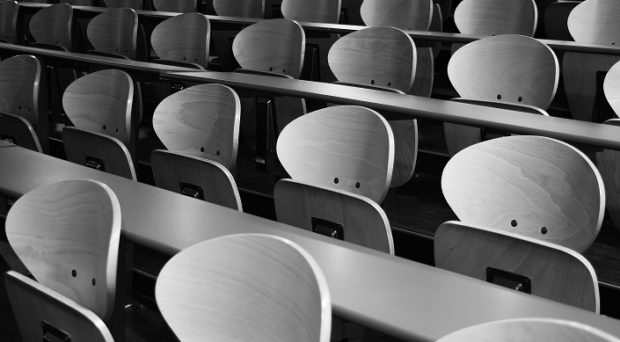
“If you take me back to 1995, when [cheating] was completely and totally pervasive, I’d probably do it again.” (Lance Armstrong, BBC Sport 2015)
It is too simplistic to place all of the blame for cheating on individuals. While individuals do need to take personal responsibility for their actions, their behaviour is often symptomatic of wider and deeply entrenched patterns in society. As this Call for Papers suggests, when the two toxic pressures of competition and corruption intersect, it cannot be surprising that scholars at all levels of the educational spectrum may choose the ‘easy’ path of cheating to gain academic advantage.
Recent findings from the Contract Cheating and Assessment Design Project, support the earlier conceptualisation by Bertram Gallant (2011) that cheating is a systems issue requiring a broad, holistic response, rather than an individual behavioural problem which can be solved using a ‘catch and punish’ approach.
Yes, some scholars cheat. Students plagiarise or outsource their learning, researchers fabricate results and authors submit recycled or redundant publications. So much research is devoted to understanding the individual motivations for cheating (eg academic, social or financial pressure, poor time management, etc), without addressing the broader educational and social context. As I suggested in 2013:
Higher education is a competitive enterprise at every level – from student admissions processes to university ranking systems and competition for funding…This highly competitive and under-resourced environment is situated in an increasingly competitive worldwide economy, as well as a social context that may encourage students to regard higher education primarily as a means to a vocational end. Academic misconduct may also contribute to and be exacerbated by corruption in wider society…media coverage of various ethics scandals may have contributed to the perception that misconduct is common.
Competition and corruption go hand-in-hand
When corruption combines with increasing competition in society, for instance for access to education, jobs and wealth, academic integrity becomes a casualty.
The ‘Corruption Perceptions Index’ scores 180 countries and territories on how corrupt their public sectors are seen to be, using a scale of 0 to 100, where 0 is highly corrupt and 100 is ‘very clean’. The 2017 index found that more than two-thirds of countries score below 50, and many countries (including developed countries such as Australia) are actually declining in their scores.
The Global Corruption Report: Education detailed a vast array of corrupt practices including “illicit payments in recruitment and admissions, nepotism in tenured positions, bribery in on-campus accommodation and grading, political and corporate undue influence in research, plagiarism, ‘ghost authorship’ and editorial misconduct in academic journals” (Executive Summary, p. xx).
The Independent Commission Against Corruption in Australia report, Learning the hard way: Managing Corruption Risks associated with International Students at Universities in NSW, highlighted the specific corrupt practices in international education, including: falsification of entry documents, cheating in English language proficiency tests, online contract cheat sites selling assignments, plagiarism, and cheating and fraud in examinations. I commented at the time that “corruption has seeped into every aspect of the higher education sector, from admissions all the way through to graduation”.
When corruption combines with increasing competition in society (eg for access to education, jobs and wealth), academic integrity becomes a casualty. The poisonous mix of competition and corruption has the potential to create an environment where misconduct becomes the norm, rather than the exception. There is a sense of pessimism and despondency for some in academe that there is simply no other way to get ahead than to fabricate, falsify, plagiarise, misrepresent, outsource, cheat and take unfair advantage. If ‘everyone else is doing it’, scholars may justify their behaviour in the same way that famous sports stars have done by arguing that they are simply responding to external pressures and creating a ‘level playing field’.
It is therefore more important than ever that scholars at every level of the academy make a stand for academic integrity and to insist that all academic work – whether an assignment by an undergraduate student, a PhD thesis by a graduate student, or a publication by a leading researcher – is underpinned by the values and practices of honesty, trust, respect, fairness and responsibility. This journal provides the platform for that stand to be taken. As researchers and practitioners we have a responsibility to undertake the challenging task of exploring how and why competition and corruption is so harmful to academic integrity and to provide empirically based insights and recommendations for action.
The International Journal for Educational Integrity has launched a call for papers inviting empirical, theoretical or case study contributions which address this complex interplay of factors and provide fresh insights and recommendations for action.
Comments